
-
 86-21-63895588
86-21-63895588
-
 No.1, Lane 600, Nanchezhan Road, Huangpu District, Shanghai 200011
No.1, Lane 600, Nanchezhan Road, Huangpu District, Shanghai 200011
Release time:2023-10-12
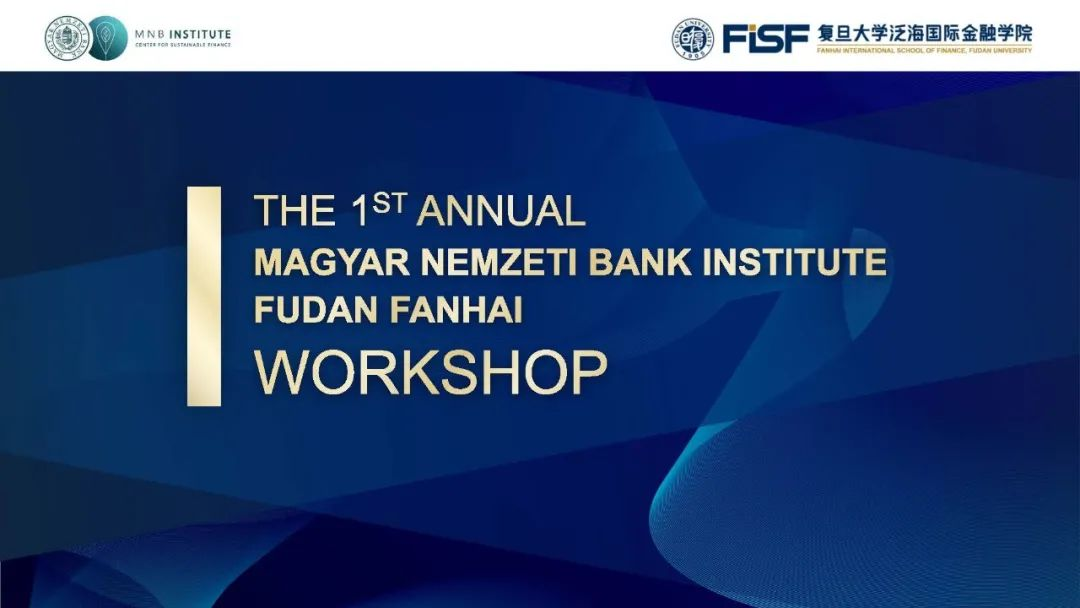
On September 28th 2023, the 1st Annual Magyar Nemzeti Bank Institute Fudan Fanhai Workshop was successfully held online. Jun Qian, Executive Dean of FISF and Professor in Finance, Yi Huang, Professor in Finance at Fudan University, Wenbin Wu, Associate
Professor in Finance at FISF, Chang Ma, Associate Professor in Finance at FISF, Xiaxin Wang, Associate Professor in Economics at FISF, Kristóf Lehmann, Director of Magyar Nemzeti Bank Institute (MNB Institute) and Director of MNB International Council for Monetary Policy Analysis and Economic Sciences, Gábor Malatinszky, Senior Researcher of MNB Institute, Gábor Neszveda, Associate Professor of MNB Institute and Department Director of MNB, Balázs Vonnák, Associate Professor of MNB Institute and Senior Researcher of MNB, Chaoyi Chen, Assistant Professor of MNB Institute and Researcher of MNB, as well as several professors and scholars were present at the meeting to discuss financial hot topics and explore cutting-edge achievements.
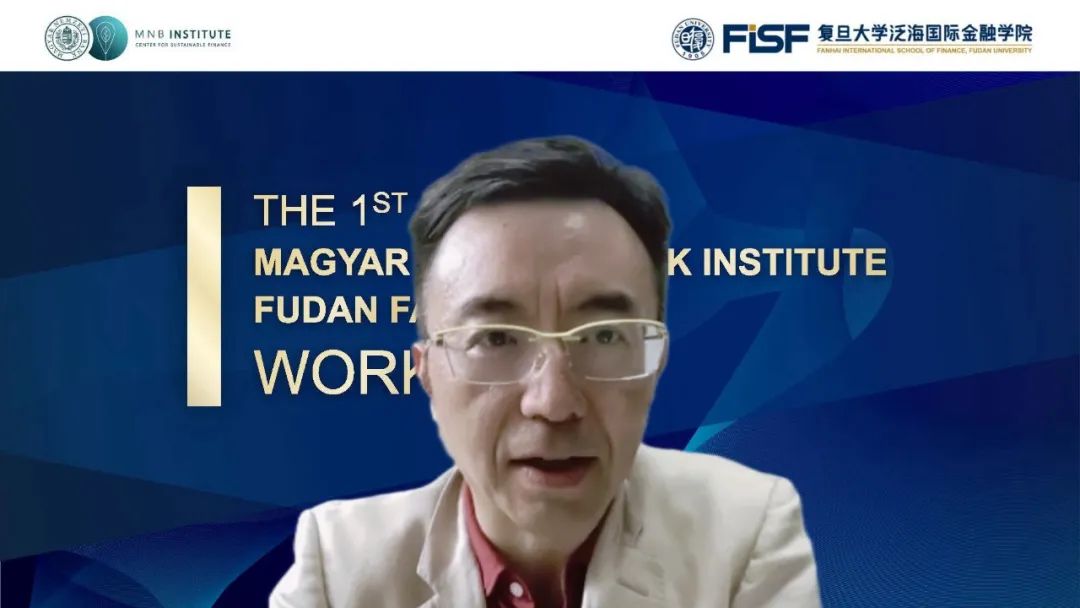
Professor Jun Qian delivering the welcome speech
At the beginning of the meeting, Jun Qian, Executive Dean of FISF and Professor in Finance, expressed thanks to Kristóf Lehmann, Director of Magyar Nemzeti Bank Institute (MNB Institute) and Director of MNB International Council for Monetary Policy Analysis and Economic Sciences, for his support for the workshop, and delivered his hope for mutual interaction and communication offline in the future.
The first half of the meeting was hosted by Gábor Malatinszky, Senior Researcher at MNB Institute.
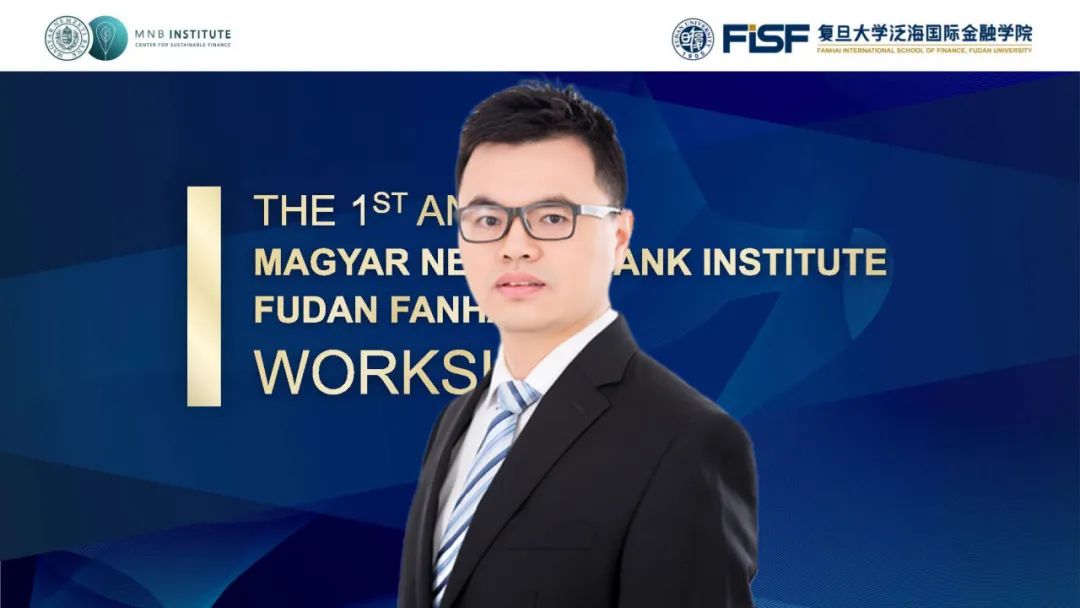
Professor Wenbin Wu giving a keynote speech
Wenbin Wu, Associate Professor in Finance at FISF, gave a keynote speech entitled Driving Factors of the Global Financial Cycle. He stated that in the existing documents, there is a record of a unique factor extracted from a set of high-risk asset prices that could be used to capture the global financial cycle (GFC). It was identified by Miranda-Agrippino and Rey (2020) that the US monetary policies had a strong overflow effect on GFC, and acted as a critical driving factor. The study reexamined this through a large-scale structural vector autoregressive model based on heteroscedasticity and a structural vector autoregressive model with random volatility. Both methods allow for simultaneous recognition of multiple shocks with no reliance on timing sequence or symbol limitation. According to the data from 1980 to 2019, financial shocks, including the ones to US corporate bond spreads (or excess bond premium, EBP), term premium and financial institution leverage, have a significant influence on GFC, acting as the most important driving factor. Among these, the shocks to US corporate bond spreads are of the greatest significance. As revealed in the result of the study, the hegemonic status of the US in the global financial system might have come from its strong financial intermediaries, instead of the Federal Reserve itself.
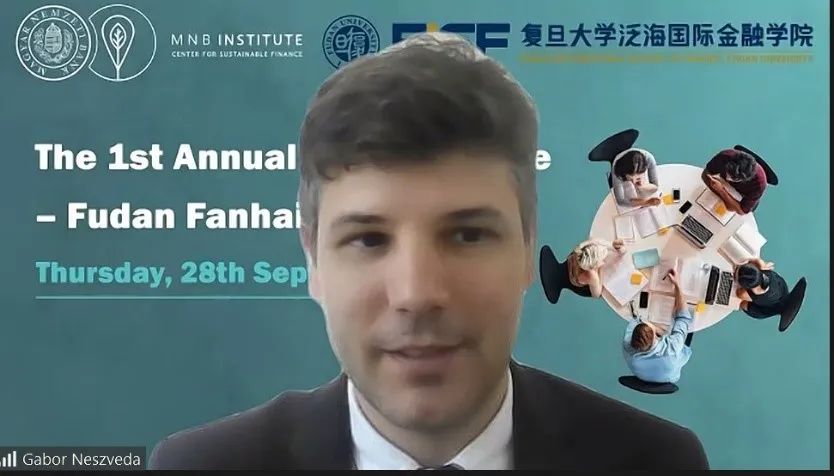
Professor Gábor Neszveda giving a keynote speech
Gábor Neszveda, Associate Professor of MNB Institute and Department Director of MNB, gave a speech entitled Desire Levels and Asset Prices, in which he introduced an asset pricing model based on consumption with an original preference brought in. Representative economies could acquire utility from not only the consumption flow but also the performance of financial investment portfolios. The research model could exert high-volatility stock market returns and excess returns, with random average and random volatility as well as time-varying but stable risk-free interest rates. The average and standard deviation of the returns and excess returns in the model were quite close to the empirical corresponding values. In the medium- and long-range, the stock market returns showed a weak negative autocorrelation and could be predicted via the dividend yield. And the price-dividend ratio resulting from the research model showed high volatility and a strong positive autocorrelation. Besides, it also indicated the time-varying pro- and counter-cyclical characteristics of the interest rate dynamics, the low correlation between consumption growth and stock market returns, and the recurrence of the occasional negative risk premiums.

Professor Chang Ma giving a keynote speech
Subsequently, Chang Ma, Associate Professor in Finance at FISF, gave a speech entitled Foreign Securities Investment, Resident Investment Portfolio Adjustment and Housing Prices, exploring the influence of cross-border securities investment flows on resident investment portfolio adjustment and housing price anticipation. By identifying and evaluating certain capital inflows in the Household Finance and Consumption Survey data from 2009 to 2018 by European central banks, the survey found that foreign securities investment inflows would drive households that held more bonds and stocks to make asset allocations toward real estate. This effect was not promoted by the previous acquisition or increase of credits. It was more evident in families with a larger wealth and lower risks. Apart from this, foreign securities investment flows were also found to be able to predict the overall housing prices, under a mechanism related to the increase in residents’ expectation of housing prices.
The second half of the meeting was held by Xiaxin Wang, Associate Professor in Economics at FISF.
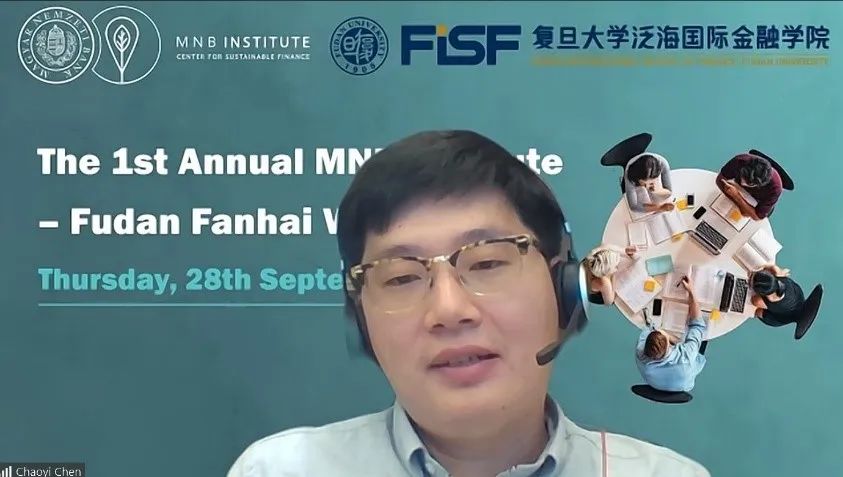
Professor Chaoyi Chen giving a keynote speech
Chaoyi Chen, Assistant Professor of MNB Institute and Researcher of MNB, gave a speech entitled Threshold Regression of Endogenous Inflection Points, talking about a study that considered an endogenous continuous threshold regression model applicable to time series and panel data framework, in which the threshold variables and regression variables were all endogenous. It constructed the estimator with the control function method, deducted the consistency and asymptotic distribution of the proposed estimator, and evaluated the limited sample performance of the estimator through Monte Carlo simulation. In the end, this model was used to analyze the influence of COVID-19 cases on the labor markets in the US and Canada, proving that though COVID-19 had significantly positive impacts on the unemployment rate in both situations, such impact would be even more significant if the number of cases exceeded a certain level.

Professor Yi Huang giving a keynote speech
Yi Huang, Professor in Finance at Fudan University, gave a speech entitled The Bond Financing Channels of Monetary Policies: Evidence from Bank of China Loans, studying the microdata of bank loans to investigate the effect of bond financing cost changes brought by monetary policy changes on loan interest rates. Loose monetary policies would lead to a decrease in loan interest rates and loan spreads while expanding the scale of loans. The conduction effect of the monetary policies displayed heterogeneity in different aspects of enterprises, industries and regions.
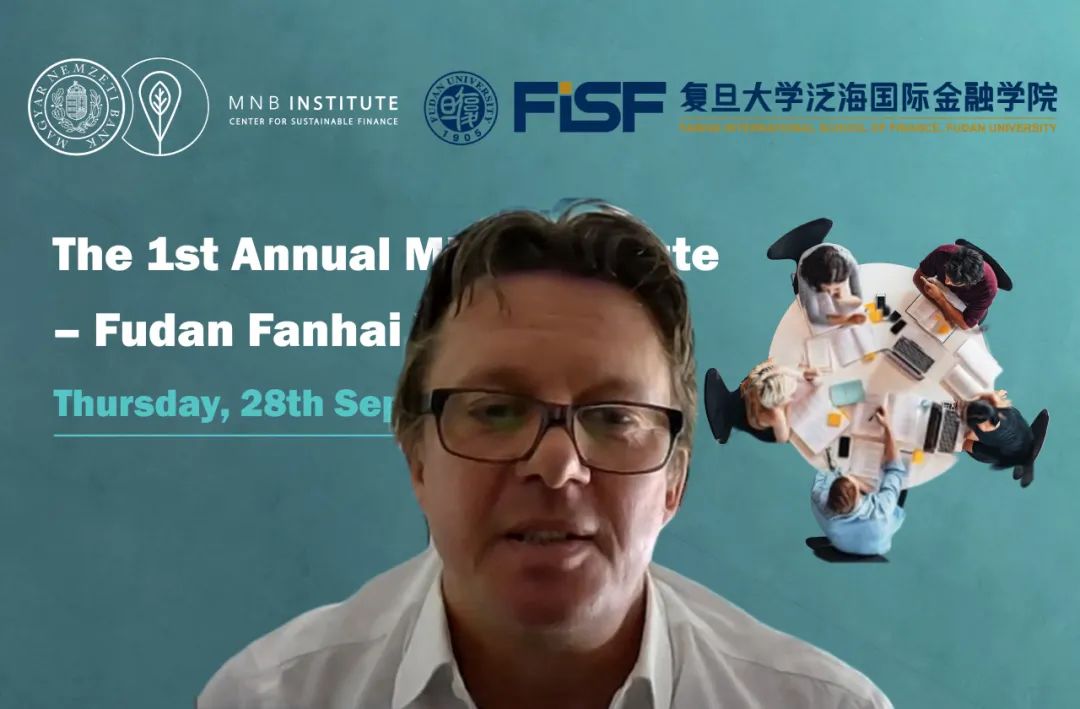
Professor Balázs Vonnák giving a keynote speech
Later, in the speech entitled Predicting the Nonlinear Effects of the FED Interest Rate Policy with Generalized Propensity Scores, Balázs Vonnák, Associate Professor of MNB Institute and Senior Researcher of MNB, introduced a new method to predict the influence of the FED interest rate decisions on major macro variables. This predictor was based on generalized propensity scores, which got its advantage by reducing dimensions and making it possible to predict nonlinear effects in short time series. According to the result, in the condition of high-interest rates, monetary policies have a rapid and remarkable effect on GDP and consumer prices, while in a low-rate environment, traditional monetary policies would lose their power.
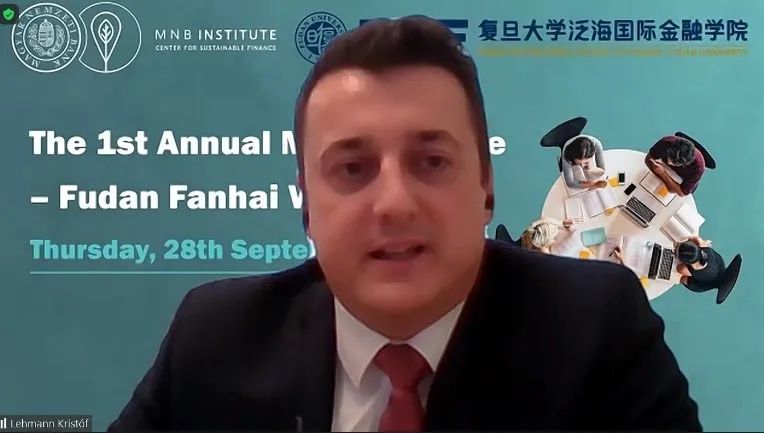
Professor Kristóf Lehmann delivering the conclusion speech
At the conclusion, Kristóf Lehmann, Director of MNB Institute and Director of MNB International Council for Monetary Policy Analysis and Economic Sciences, made brief comments on the speeches of each distinguished guest and delivered a conclusion speech. He expected further cooperation and more communication between FISF and MNB Institute in the future.
During the workshop, everyone carried out heated discussions on financial hot issues and economic situations, presenting sparks of mind collisions for the audience. In the future, FISF and MNB Institute will jointly conduct more activities for academic exchanges on more frontier topics in the financial and economic fields.